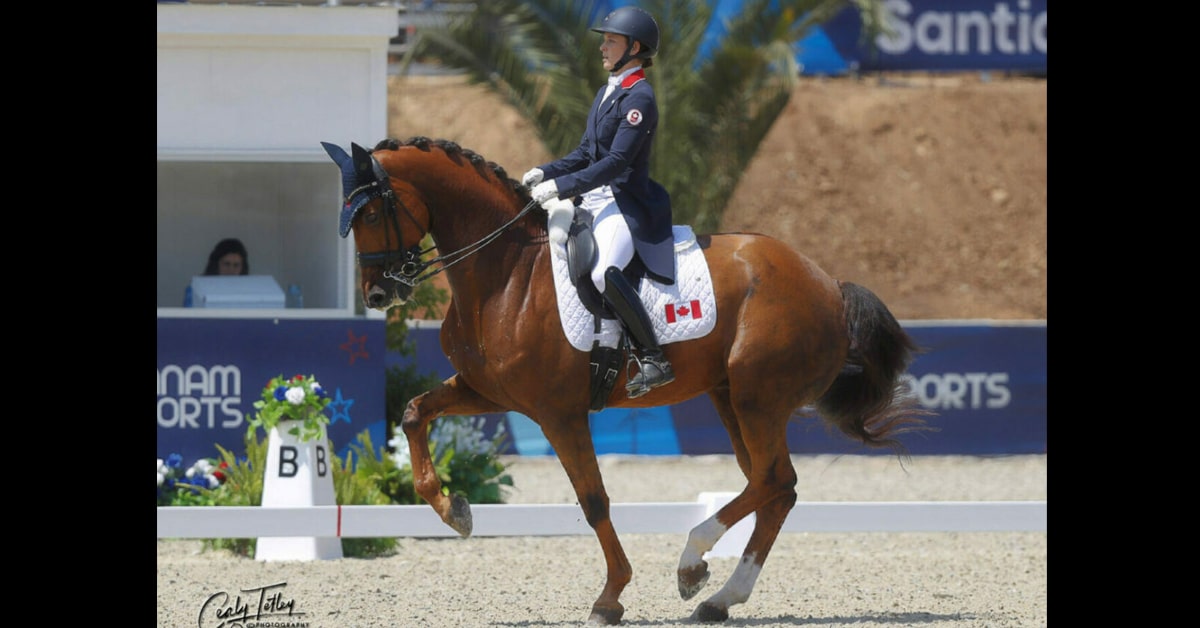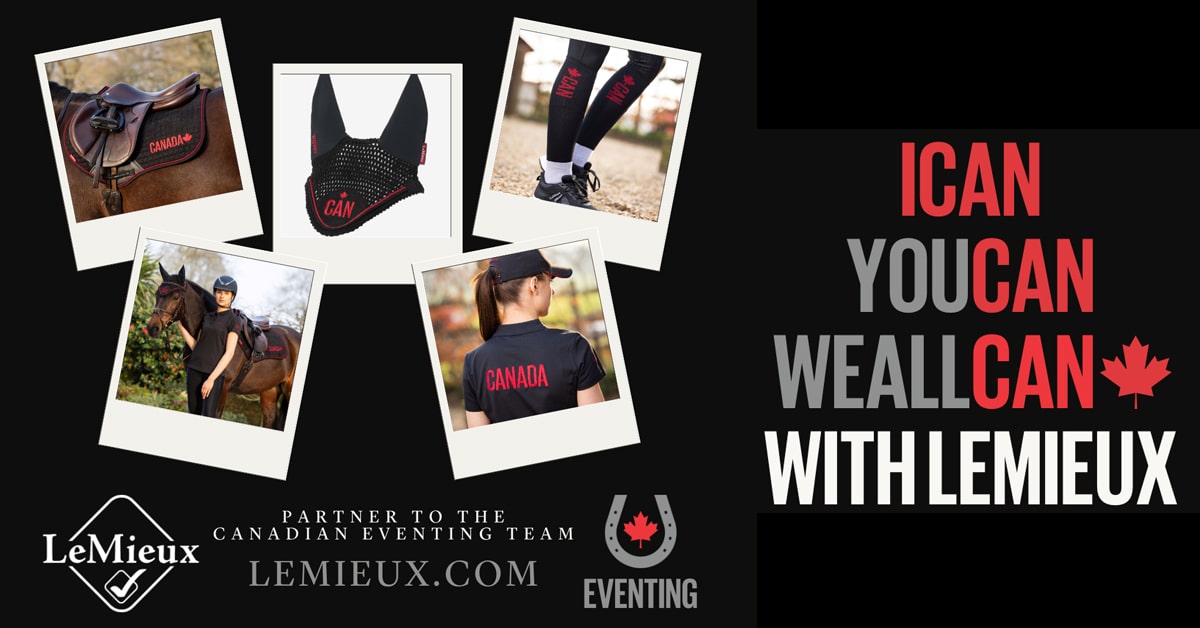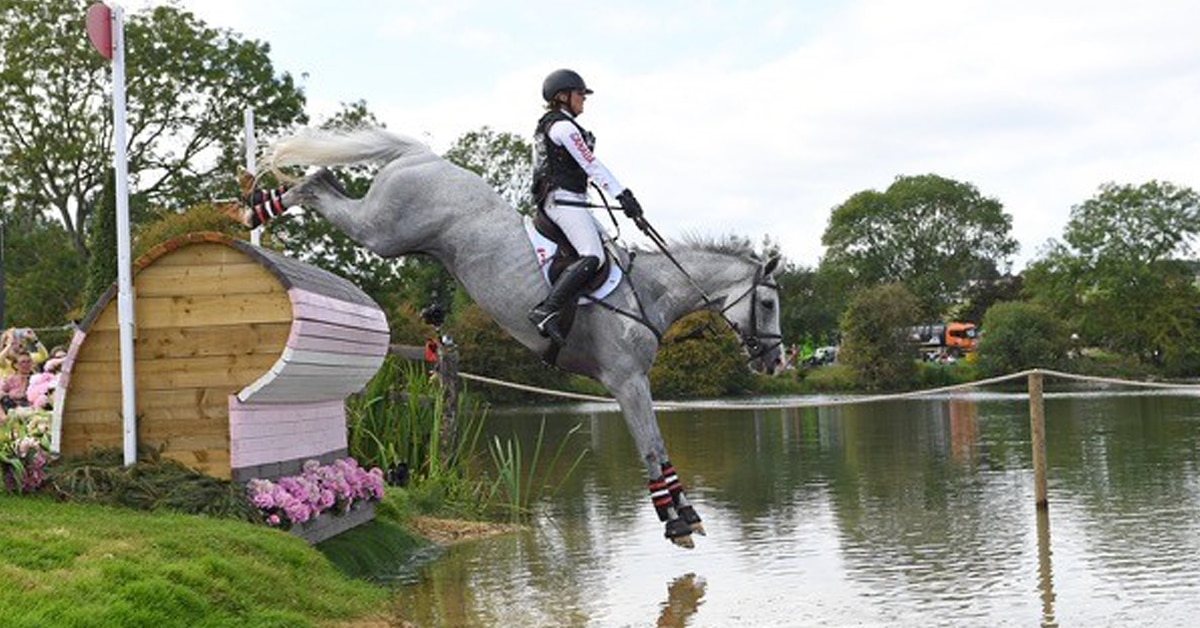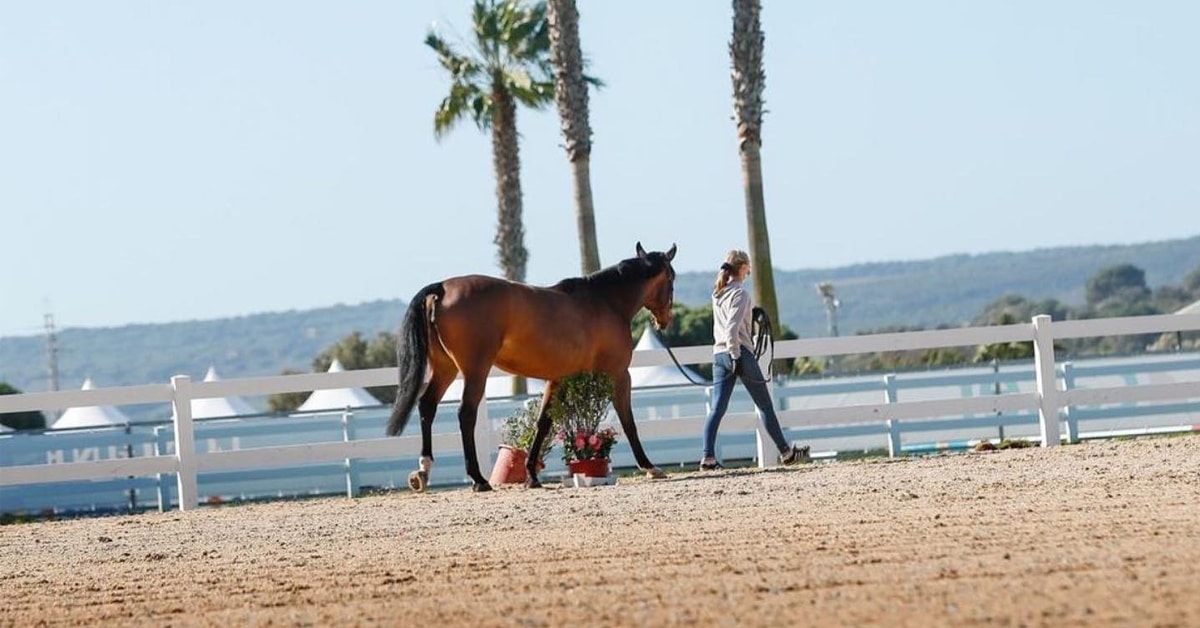The management of unwell horses after EHV-1 was suspected of spreading to the Sunshine Tour in Vejer de la Frontera, Spain, has been strongly criticised by Swedish rider Annika Axelsson.
The EHV-1 crisis has led to 18 equine fatalities overall and blanket cancellation of FEI events across mainland Europe, including the World Cup finals.
But despite the escalating cases with unusual neurological symptoms elsewhere on the Spanish circuit, Annika insists that Sunshine Tour was reluctant to recognise her mare Agnetha Z as a likely EHV-1 case. Instead she was diagnosed with piroplasmosis and ended up being cared for by a Belgian vet who was also on site, rather than the official show veterinary staff.
Annika claims the organisers were still arguing her mare was negative to EHV-1 while simultaneously alerting the FEI that she was too sick to travel. In a long letter to the FEI published on her website Annika concludes: “I would sincerely had hoped that the organisers – known to host one of the very best events in the world – would have acted more professionally, both prior to and after the cancellation [of the tour.]
“The health and welfare of our horses should always remain the number one priority, everything else is secondary. I hope my experiences can serve as an input to the FEI’s review of the EHV-1 outbreak so that what has happened won’t be repeated.”
There are several jumping tours in Spain and Portugal over the winter, normally attracting thousands of horses from across the European continent through the end of March.
In early January Annika first travelled 10 horses from her base in Holland down to the tours on the eastern coast at Oliva and Valencia – at which latter showground the EHV-1 crisis first took hold.
On February 6, Annika’s healthy Agnetha Z arrived direct from Holland to the Sunshine Tour on the southernmost tip of Spain. In the third week she developed a fever and was moved into an isolation area. She was initially diagnosed with piroplasmosis. Annika claims that for several days she was unable to convince the vet to test for EHV-1. When finally tested, she was negative.
With the show vet insisting Agnetha Z did not have EHV-1, Annika took her other horses back to Holland and left the unwell mare with her groom until cleared for transportation. Health papers were issued on February 28.
By the morning of March 4 Agnetha Z was dragging her hindlegs and not urinating – another sign, says Annika, of EHV-1. The show vet had not checked on any unwell horses that morning, Annika alleges. Another rider Tom Martens requested the vet by phone. She arrived at 2 pm. By now the mare was unstable and uncoordinated, which the vet attributed to slippery footing.
Annika says it was “clear” the show did not wish to treat the case as EHV-1 and so the owner asked a Belgian vet on site, Dr. Frederik Bruyninx, to take over her care. He administered medications which arrived from Belgium on March 5.
On Friday March 5 the show told other riders via WhatsApp that Agnetha Z was negative to EHV-1, yet the FEI advised she was inconclusive. It was Agnetha’s status plus that of a second horse which led the FEI to cancel the Sunshine Tour that same weekend.
When the show allegedly prevented the FEI veterinary delegates from entering the isolation stables, Annika tried to transfer Agnetha Z to a private clinic, where she was declined due to her symptoms.
Agnetha returned a positive result for EHV-1 after arriving at a clinic in Belgium, and is still there, unwell. Six of Annika’s other horses also returned positive EHV-1 on March 27.
Other key points from the letter include:
- Other horses that were not unwell had been moved to the isolation stables because of the FEI “block” on competing for ex-Valencia horses;
- Until March 5, people could enter and leave the isolation area without security checks. The show’s veterinary staff passed between horses in the same clothing;
- In a statement dated March 9, the organisers said EHV-1 and EHV-4 at no time had been detected at their facilities, without mentioning that FEI deemed Agnetha Z’s latest test inconclusive. Agnetha Z was named without consulting the rider or owner.
- Veterinary resources in the isolation stables were “ not enough for one horse, let alone in a worst-case scenario for the entire horse population.” For example, when Dr Bruyninx wanted to put Agnetha Z on fluids, no catheter was available.
The lack of appropriate facilities and unreadiness of show staff to cope with any major outbreak has been well chronicled by some of the riders caught up in the main EHV-1 wave in Valencia.
The FEI has promised a full and transparent investigation and has meanwhile enhanced compulsory biosecurity measures at all FEI events in Europe till at least May 30. Among others, these address the number and density of horses which can be stabled in the same unit. Accommodation for over 300 horses in the same tented space is previously not unheard of on these tours.
The FEI head of veterinary Goran Akerstrom told a recent virtual press briefing that existing biosecurity regulations were already robust. “For this short period it is more a matter of compliance and that everyone buys into this. We need to do this together because it is not much worth having rules if they are not followed – that is absolutely key.”
More from News:





